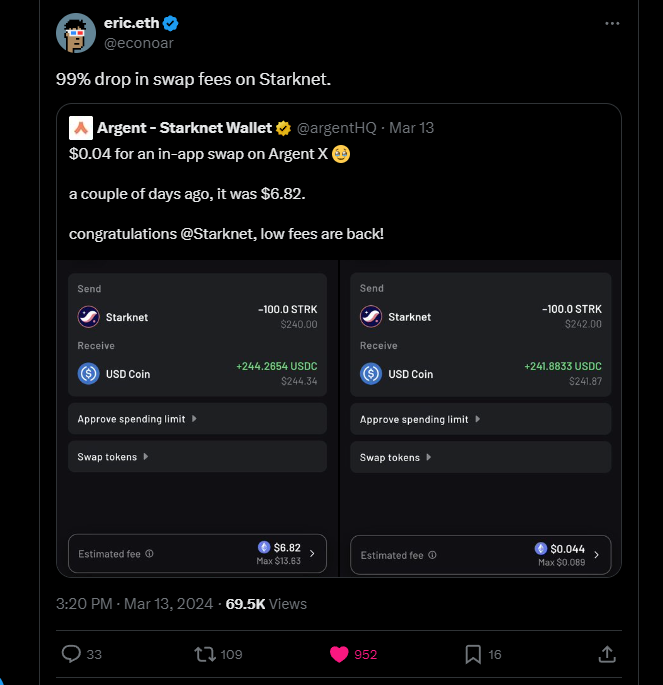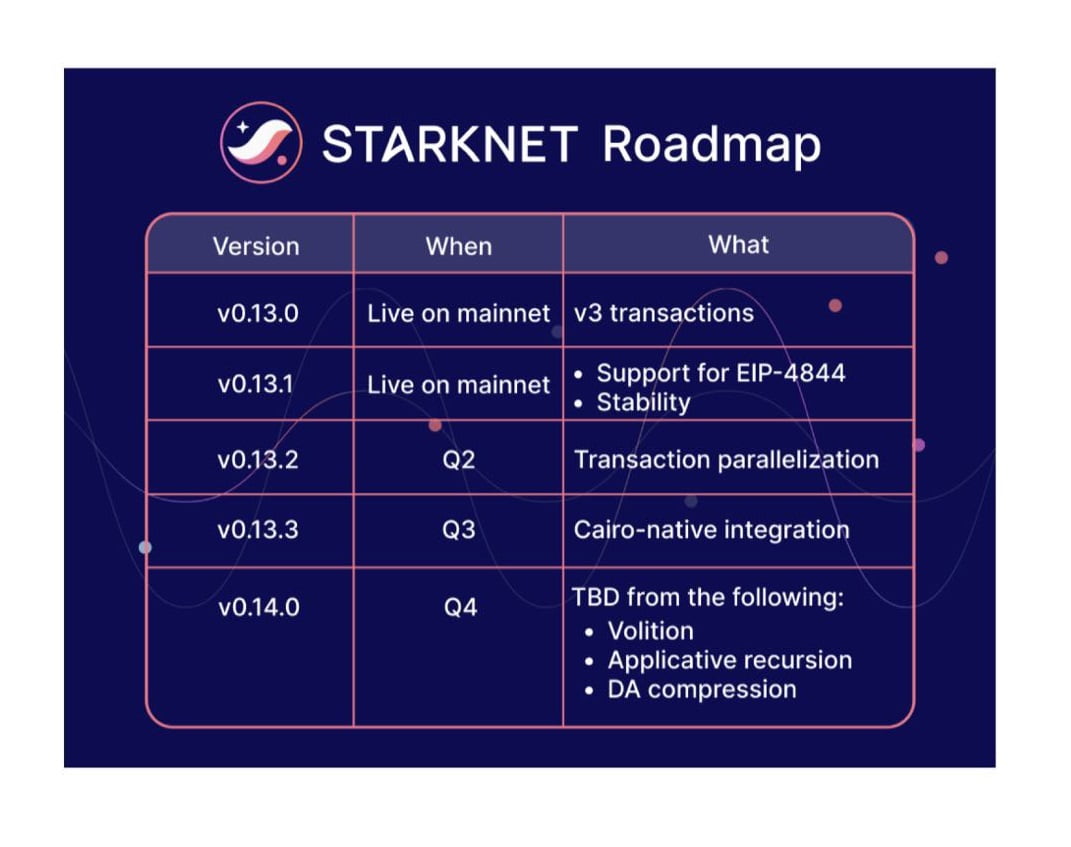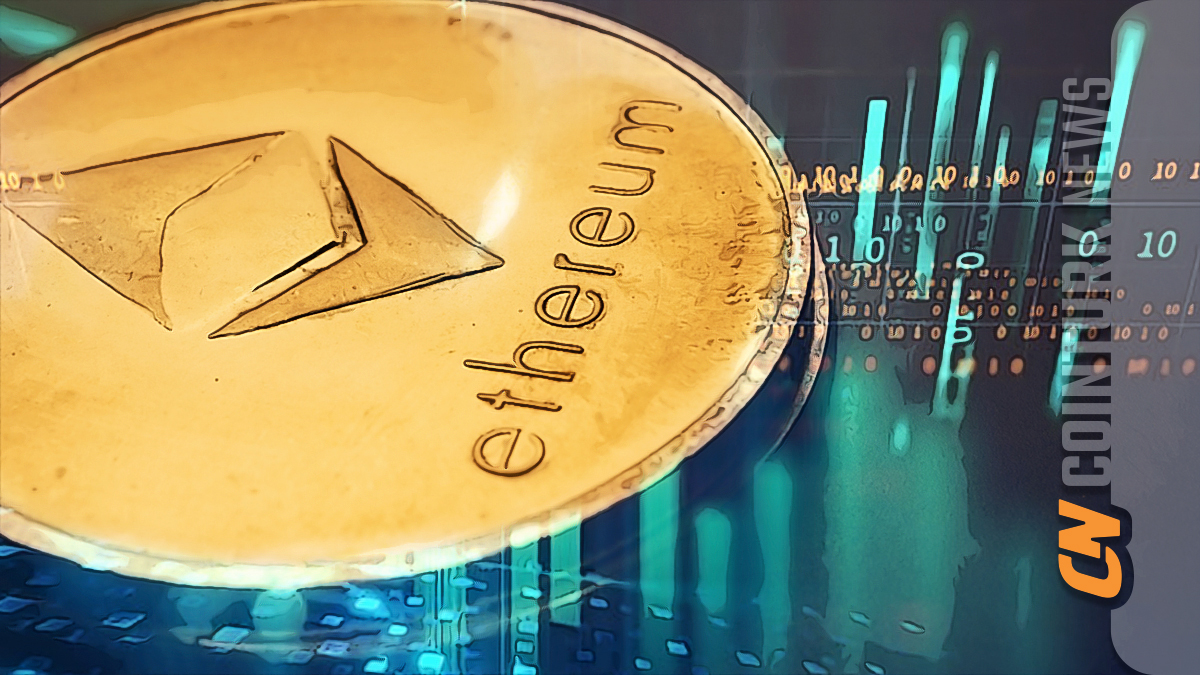Ethereum scaling protocol Starknet anticipates higher efficiency and lower fees in its Layer-2 rollup network by introducing parallel transaction functionality in 2024. Following the successful implementation of Ethereum‘s Dencun hard fork, an updated roadmap for the Layer-2 rollup solution was released on March 20th. The network upgrade introduced various Ethereum Improvement Proposal (EIP) processes, including EIP-4844.
Starknet and the Dencun Upgrade
EIP-4844 offers a new way for rollups to add data to blocks more cheaply by introducing blob space instead of using call data for storage. Historically, using call data to store cryptographic proofs of off-chain bundled transactions was expensive because all Ethereum nodes had to process data that lived on-chain indefinitely.
Following the implementation of Dencun, Starknet and other key Ethereum entities accelerated their ability to redirect proofs to blob space. The network became one of the first to enable the blob function on the same day as the hard fork, and a significant reduction in user fees was reported hours later.

Starknet’s compatibility with EIP-4844 resulted in transactions on the protocol averaging a fee of $0.017 per transaction. The team had previously expanded the block size of the rollup protocol and reduced fees by an estimated 25% with the early 2024 release of Starknet v0.13.0.
The next version update of Starknet, set to be released in the second quarter, will include transaction parallelization, enabling the network to perform simultaneous independent transactions. The update is expected to allow Starknet to process more transactions at once, resulting in better efficiency and faster completion on the network.

Significant Step Forward by Starknet
Starknet also plans to further reduce fees on its network by the end of 2024 with version 0.14.0, depending on the long-term impact of EIP-4844 and its own protocol’s performance improvements. The year-end update is set to include three data availability-focused upgrades within the rollup. Volition will facilitate hybrid data availability on Starknet, allowing decentralized applications (DApps) to store data on Starknet instead of Ethereum’s base layer.
The application self-iteration is expected to enable developers to aggregate data storage proofs from multiple Starknet blocks to Ethereum. This upgrade is being launched to reduce Layer-1 costs and feed reductions for end-users.

 Türkçe
Türkçe Español
Español









